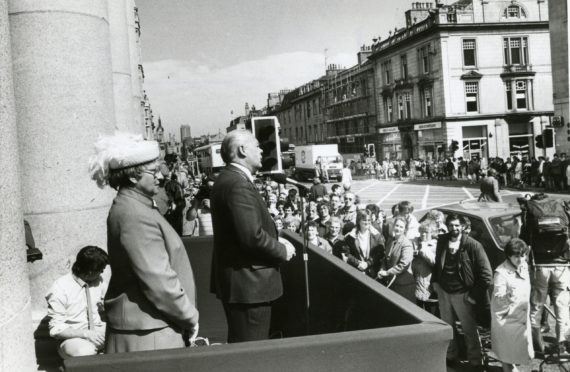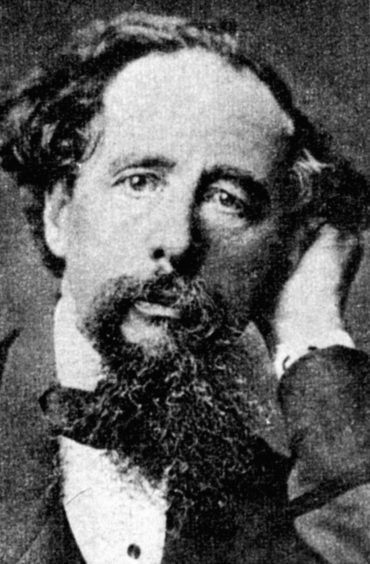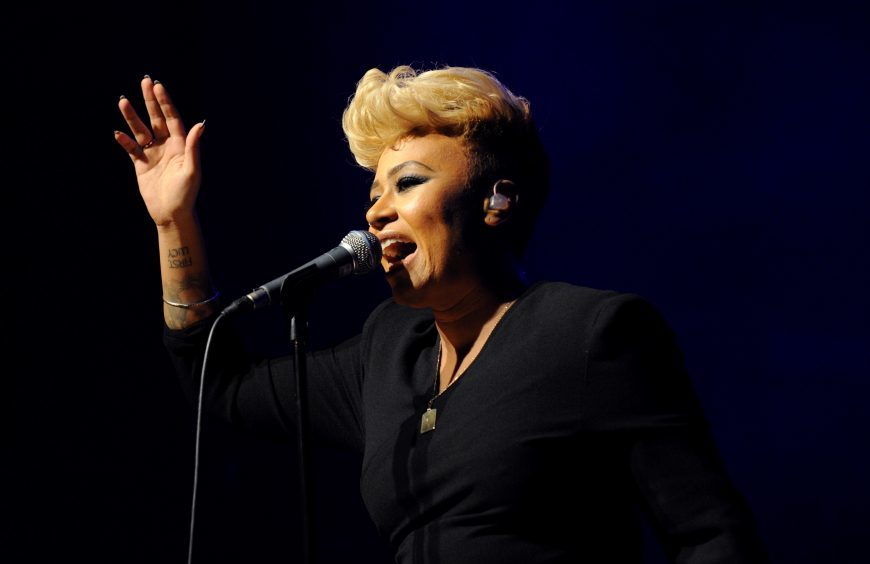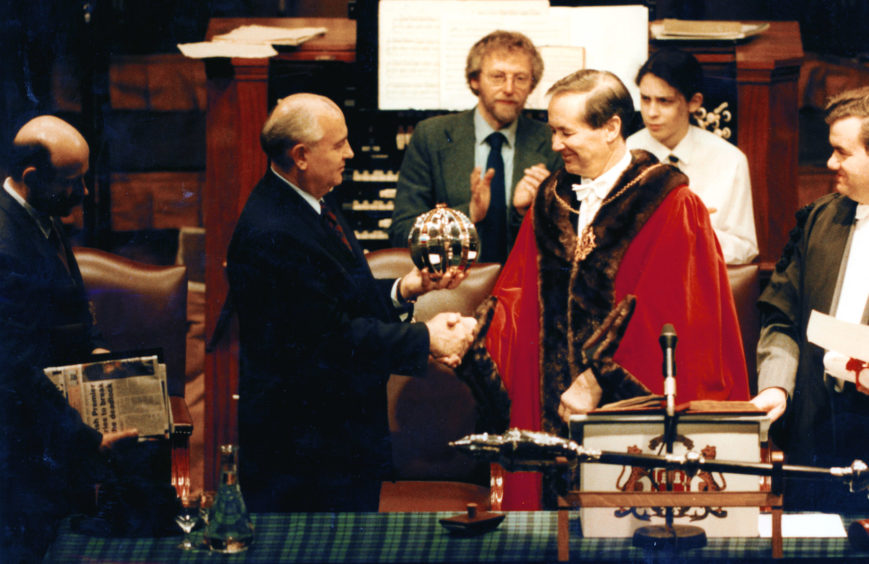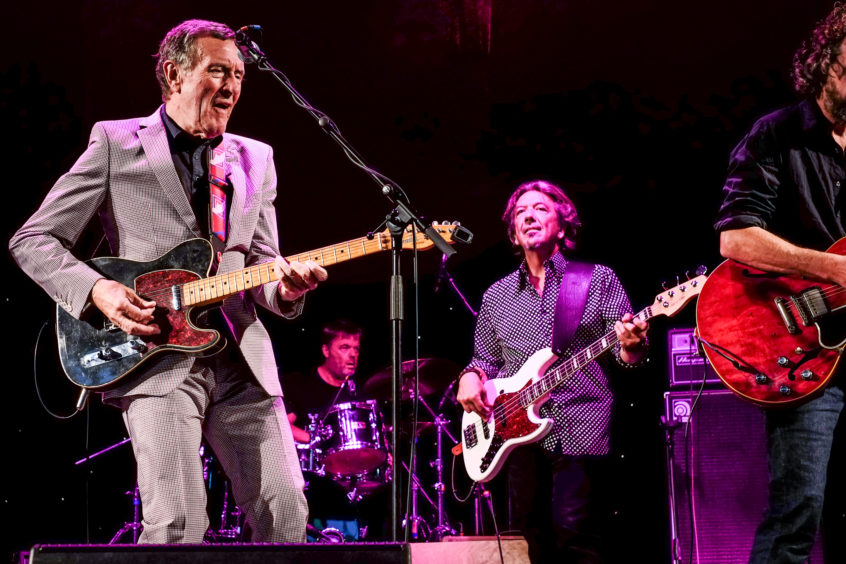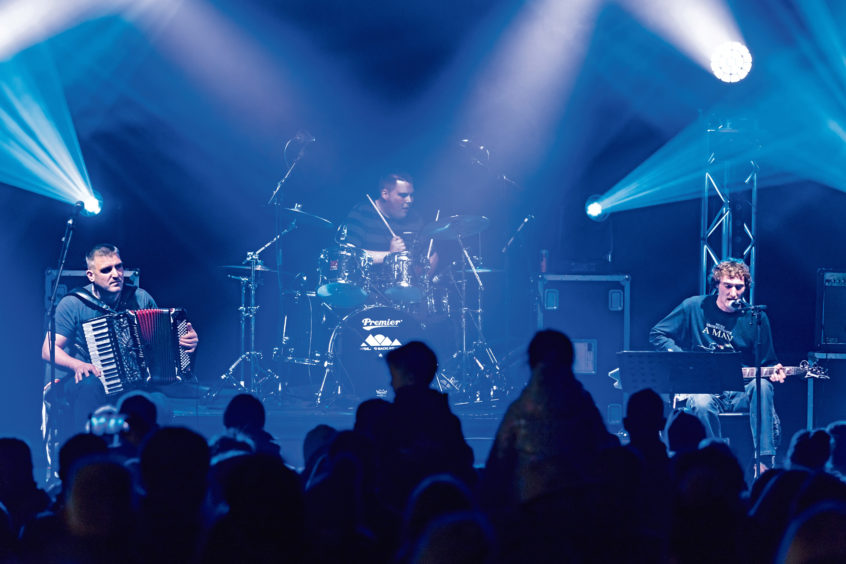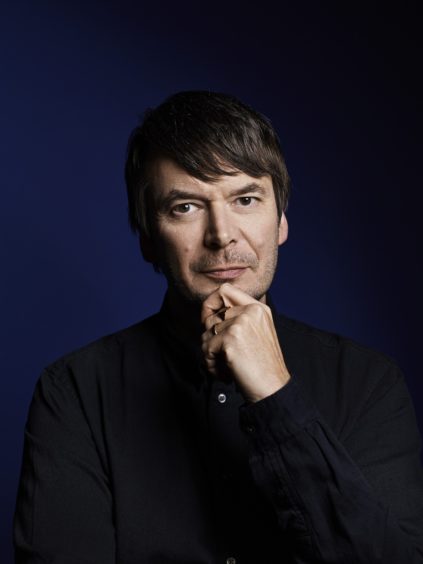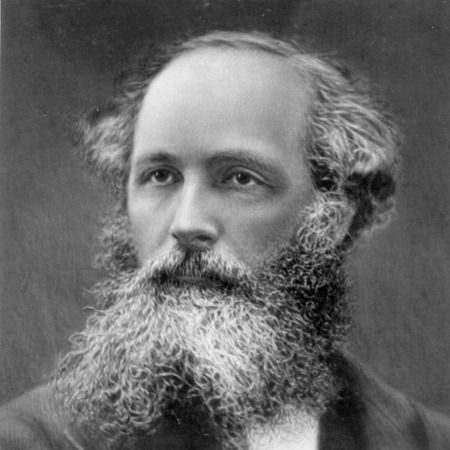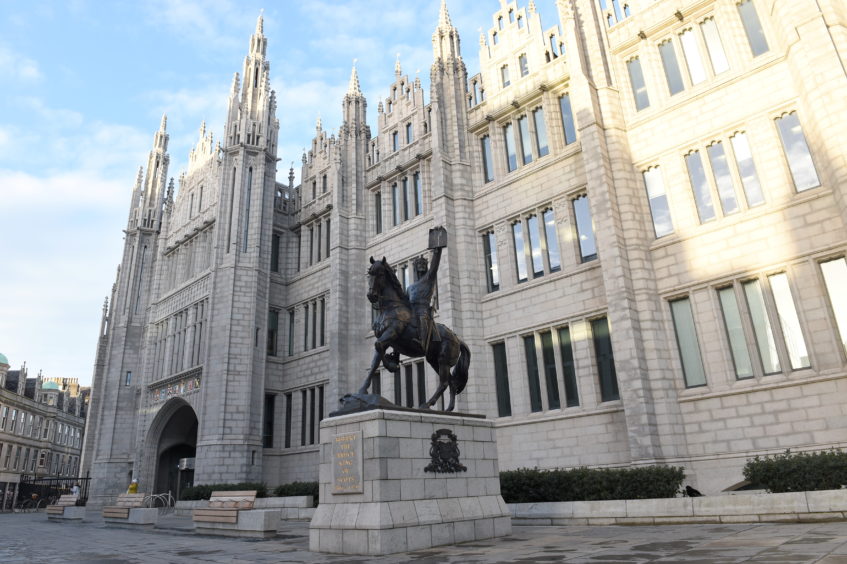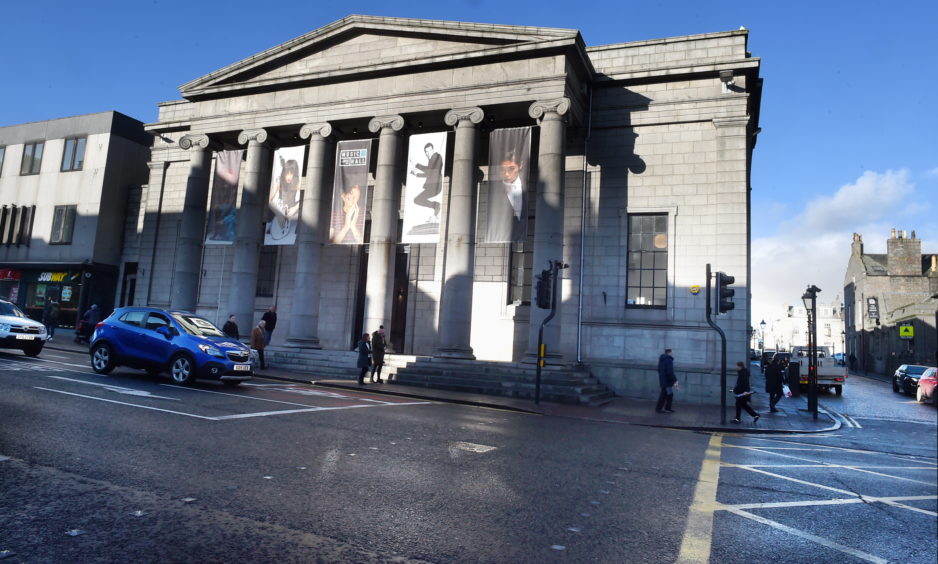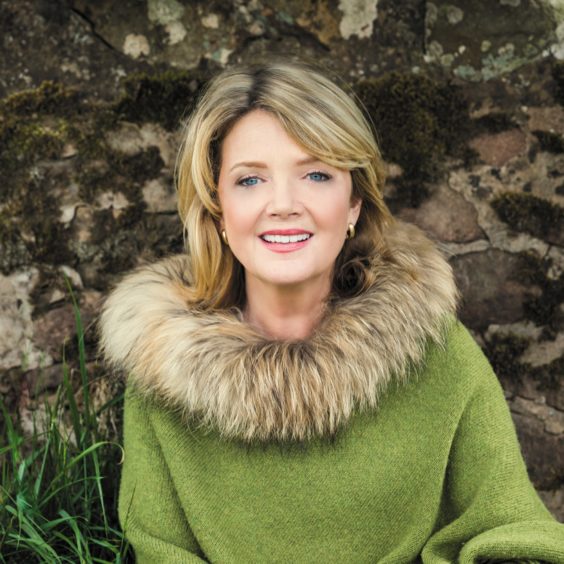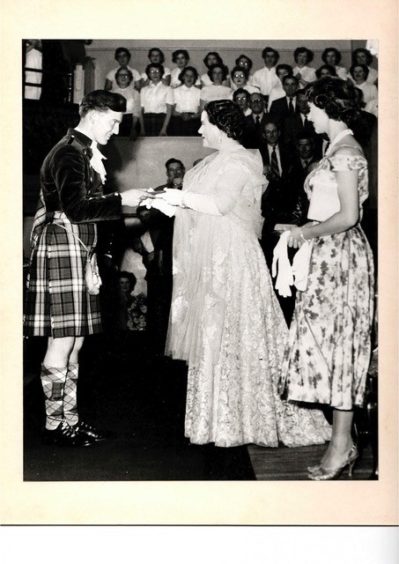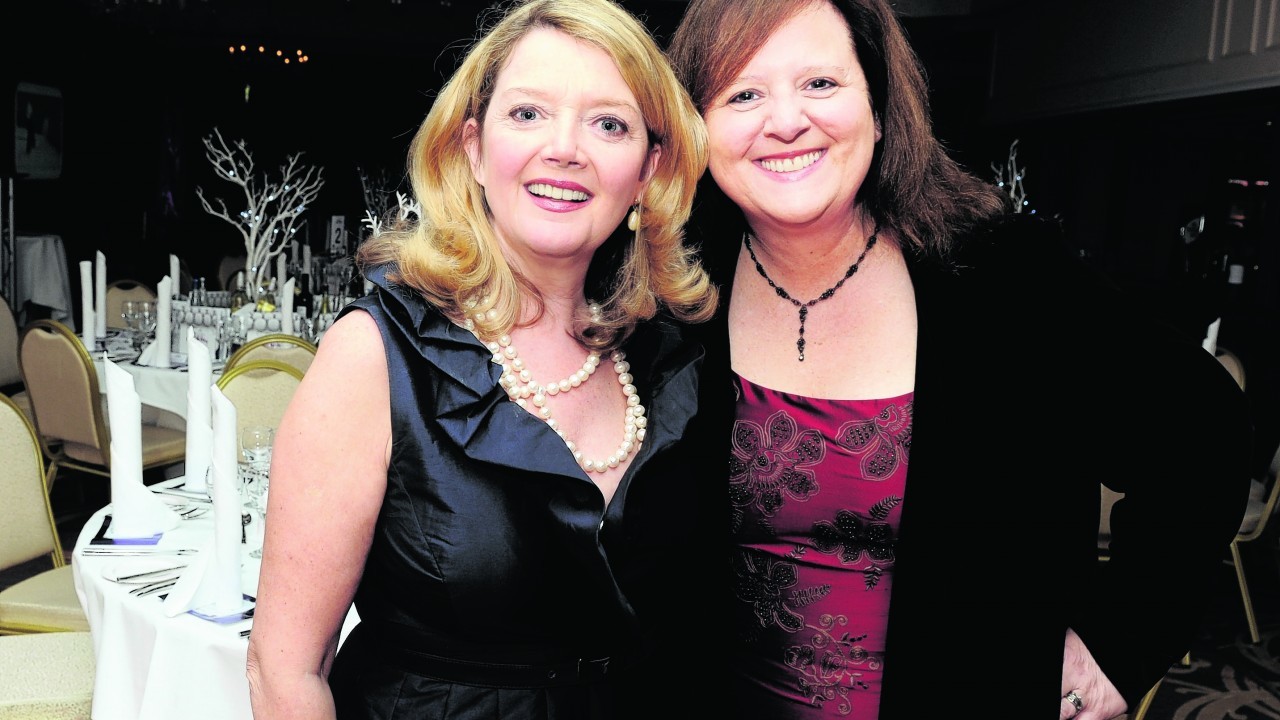It is one of the most cherished arts venues in Britain; a place which has hosted everybody from Charles Dickens to David Bowie and General Tom Thumb to Nicola Benedetti.
And now, some of the biggest names in Scottish pop, folk and classical music have lined up to applaud the 200th anniversary of Aberdeen’s Music Hall, which has been an integral part of the Granite City panorama since the original foundation stone was laid during a special ceremony in 1820.
Several transformations
The building, designed by renowned architect, Archibald Simpson, subsequently opened in 1822 and has gone through several transformations during its history and been significantly enhanced and renovated since those early says where it was known as the County Assembly Rooms on Union Street.
Yet, after opening at a cost of £11,500, the list of those who have entertained the north-east public during three different centuries, testifies to its enduring ability to attract an eclectic range of artists, dancers, speakers and festival participants.
Celebrated author, Charles Dickens, was in his element during a series of readings at the arena in 1858 and 1866; Aberdeen’s first film shows were screened there in 1886; the internationally-acclaimed Halle Orchestra made their debut at the hall in 1952; and the famous American actor, singer and civil rights activist, Paul Robeson, gave what the Press and Journal described as an “extraordinary performance” in 1960.
More recently, it has welcomed many of the biggest stars in pop and rock, including Led Zeppelin, Morrissey, Iron Maiden, Black Sabbath and Blondie, all the way through to highlighting the talent of Emeli Sande, who appeared there back in 2012.
Almost all of the Freedom of the City ceremonies have taken place at the Music Hall, which has been graced by some of history’s most ubiquitous figures.
Winston Churchill, Nelson Mandela, Mikhail Gorbachev and Alex Ferguson are just some of the illustrious names who have been presented with the accolade.
The venue, in common with every other entertainment centre in Britain, is closed at the moment due to the impact of the Covid-19 outbreak.
But that didn’t stop a host of talented artists from telling Aberdeen Journals this week why the Music Hall had been such a cherished location on their tour itineraries.
Hamish Stuart, the former singer and guitarist with global superstars, the Average White Band, who is now forging a successful solo career, has soaked in the atmosphere and said it always inspired him and his colleagues.
He added: “I remember playing there in 2015 for the first time in 15 or 16 years and, happily, it was packed with a lively/lovely audience and a great atmosphere.
”It is quite a surprising venue, with that grand facade outside, but it’s small and intimate enough once you are inside and on stage to sound really good.
“A very happy 200th birthday to the Music Hall and I am hoping I can come back soon.
“I was disappointed that I couldn’t make the (Aberdeen Jazz) festival gig in March because I always enjoy playing in the north-east, but understandably, we have to take this enforced break until it’s safe for us all to get back into the pool.”
His words were echoed by Innes Scott, one of the members of Western Isles band Peat & Diesel, who have taken the traditional music world by storm in the last 18 months.
He said: “We have only been to the Music Hall once and that was for the trad awards last year.
“But it was a fantastic night and there couldn’t have been a better venue.
”Walking through the front door, you instantly get a feeling of something special due to the unique lay-out.
”Entering the hall and seeing the stage just makes you want to get up there and start entertaining a lively crowd.
“And that wish is coming true when we return at the end of this year to the Music Hall on November 28 as part of our national tour.”
Best-selling author, Ian Rankin, has savoured his visits to the Music Hall, both before and after its recent refurbishment – and he established a striking rapport with his Aberdeen audience when he starred alongside Phill Jupitus at a festival in February.
Huge asset to Aberdeen
He said: “It was lovely to visit the Music Hall (for my Granite Noir event) and see it in such fine fettle.
“The lockdown is a huge blow, of course, but venues such as the Music Hall need to be preserved, praised and cherished.
“I think it is a huge asset to Aberdeen.”
The scientific genius who helped transform the Music Hall
He is one of the most famous figures in the history of global science.
And the pioneering achievements of James Clerk Maxwell laid the groundwork for everything from Einstein’s theory of relativity to the creation of modern electronics.
Driving force
But the restlessly energetic Scot was also a driving force in the expansion and refurbishment of the Music Hall during his time as a professor in the Granite City.
As a member of the British Association for the Advancement of Science, he was determined to persuade them to stage its annual meeting in the north-east.
So he was thrilled when it was agreed that the 1859 convention would be held in Aberdeen.
But there was a glitch: the city – which only had a population of 35,000 in these days – had no venue which was suitable for such a conference and the existing County Assembly Rooms were too small to accommodate such a large event.
Nonetheless, this didn’t deter the protagonist of author Brian Clegg’s work, ‘Professor Maxwell’s Duplicitous Demon’, who was instrumental in Aberdeen rising to the challenge of upgrading the auditorium and making sure that it was worthy of hosting major occasions beyond occasional talks and recitals.
Mr Clegg said: “With Maxwell among its shareholders, the Music Hall Company set to work on the rapid construction of a spacious venue in Union Street.
“The imposing 50-foot-high internal space was capable of seating 2,400 people and is still a major feature of the cityscape today.
“And the British Association of Science meeting, which was opened by Prince Albert, was a huge success.”
However, there was a curious backdrop to the story, with the Music Hall Company continuing to send dividends from its proceeds to Maxwell at the long-defunct Marischal College through to the early 1900s, long after his death in 1878.
Why the Music Hall matters so much to me and my family – says Fiona Kennedy OBE, singer, broadcaster and charity fundraiser
“Watching from the wings at the Music Hall in Aberdeen is one of my earliest memories.
“I grew up backstage and, to this day, the excitement I feel whenever I hear the buzz of an audience taking their seats, the sense of anticipation, the lights going down and the spotlight going on is magical.
“For me, the Music Hall has so many happy memories for our family.
“My father, Calum, won the Mod Gold Medal in 1955 in this wonderful jewel of a concert hall, which has a brilliant acoustic – especially for singers, acoustic bands and orchestras.
“You can hear the quietest note ringing out right to the back row of the balcony.
“Winning the gold medal was the catalyst for my father’s career, as he went on to compete in the World Ballad Championship in Moscow in 1957 beating 700 competitors!
“That was pretty amazing and he was presented with another gold medal by President Khrushchev at The Bolshoi – another pretty good hall.
“Dad used to tell us of the train journey from London to Moscow, sharing a compartment with actor Richard Harris, who was competing in the drama competitions – there’s a rumour that a few drams were taken on the way.
“Dad performed at The Music Hall many times during his career as he loved the feel of the hall and how he could connect with the audience.
“Over the years, I’ve performed there many times myself – singing, narrating children’s classical concerts with the wonderful RSNO, and taking part in VSA’s Sing Sing Sing! which is in its fifth year.
“It’s a joyful community fundraising concert, bringing together nearly 200 folk on stage, singing their hearts out, to a packed house, for a local charity.
“The newly-refurbished Music Hall is wonderful for Aberdeen city and shire.
“It gives all of us the opportunity to see and hear a wide range of concerts and events, as well as giving local artists and the community at large the same platform as the many international artists who have travelled here.
“I love performing at The Music Hall and feel a real sense of pride about following in the footsteps of all those who have gone before me.”
